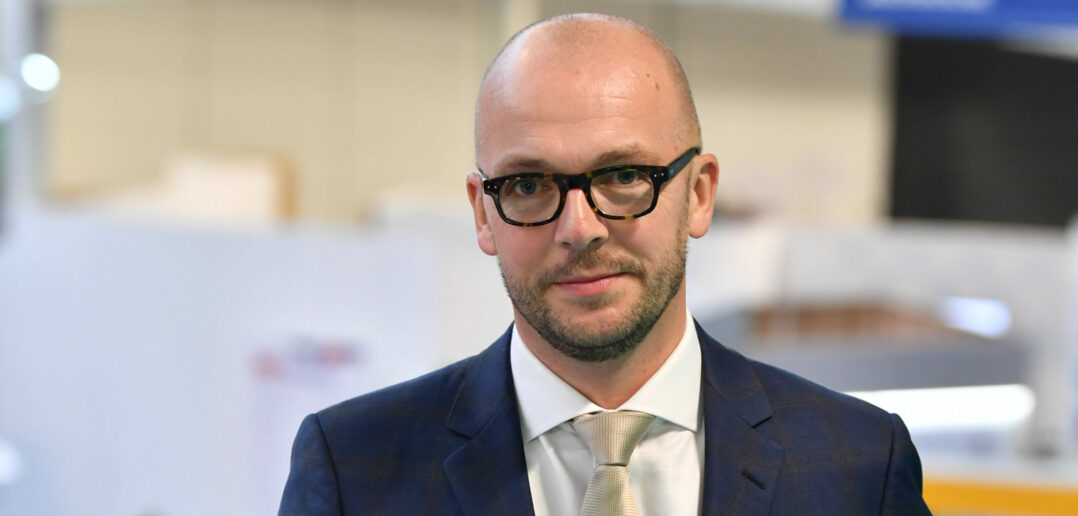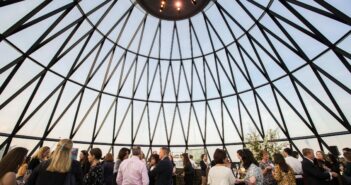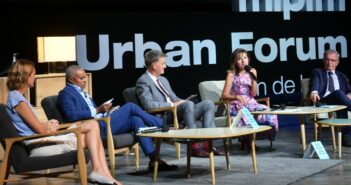The Future is Human, the theme for MIPIM 2020, is about improving the quality of life for people in the urban environment – including those working in the real estate industry itself. It is also about inspiring the ‘talent’ in our own industry to lead us forward. We caught up with Ronan Vaspart, Director of MIPIM, to find out more about the theme, and what is in store for MIPIM 2020.
MIPIM World Blog: Why did you choose « The Future is Human » as the MIPIM 2020 theme?
Ronan Vaspart: « The Future is Human » is about ensuring that people – humans – stay at the heart of our business at a time when huge social, technological and economic structural changes are reshaping our world.
For MIPIM 2020, we want to build on this more ‘human’ layer of the journey that we mapped out as part of our 2019 theme, Engaging the Future, which envisioned the next 30 years of the real estate industry.
The future of the urban environment and of our industry is about people and their quality of life, including their wellbeing.
The first five of the UN’s 17 Sustainable Development Goals are all about the human: No Poverty, Zero Hunger, Good Health & Wellbeing, Quality Education, Gender Equality.
At the same time, quality of life is intrinsically linked to achieving long-term economic growth and environmental sustainability. Our future is supported by three pillars of equal importance.
> Does the theme reflect the need for the real estate industry to be more diverse and inclusive?
Firstly, the broader industry of the built environment, across all sectors and disciplines, is a major employer, from surveyors and asset managers, to architects, lawyers and planners. We believe that it is in the best interests of our built environment ‘community’ to reflect the diversity of people who live, work and play in our urban communities.
We believe that it is in the best interests of our built environment ‘community’ to reflect the diversity of people who live, work and play in our urban communities.
Being socially inclusive allows the industry to embrace and engage with ‘talent’ – especially with the young leaders of the next generations. This is at a time when the search for talent, and how to inspire and retain talent, is a major preoccupation among real estate leaders.
Traditionally, the real estate industry has been perceived to be slow to change and to reflect little of the diversity of the communities where we work. With new players coming into the sector, attracted by the high value add of real estate as a service, this is changing, and MIPIM wants to be part of that change.
> To what extent is being human linked to the fact that real estate is increasingly seen as a service?
Especially as we tread water at the end of a cycle, searching for long-term growth, often in niche markets, the real estate industry is heading into new, more service-led areas.
We have seen the rise, for example, of flexible workspace, with short leases, and amenities and services ranging from yoga to tax returns to coffee served by a barista.
These areas require more expertise in operations and more ‘soft’, human skills. Real estate is no longer just about market cycles and valuations; it is evolving to become a people-centred industry.
> Is this a global trend?
The future around the world is becoming increasingly urban, and urban is human. By 2050, two-thirds of us will live in cities, according to the UN. The world has also become seamlessly interconnected, in a way which reflects the workings themselves of the internet.
MIPIM is a global event, attracting participants from around the world. Much of the world’s urban growth is happening, and will happen, in Africa and Asia. Egypt alone, for example, has plans to build 20 new cities to house 30 million people, including a new administrative capital, Wedian City, to the east of Cairo.
Whether in countries with fast-growing populations or in more developed economies, the urban issue is the same – that real estate stays relevant to those who live, work and play in our urban environments.
> How is changing social behaviour affecting what it means to be human?
We held our first Young Leaders Forum at MIPIM this year. It was a great success. For 2020, we are keeping the focus on the young leaders, as they are the future of the industry.
With the younger generations, wellbeing and transformational experiences are replacing the desires for material consumption and private ownership, although this is not exclusively the preserve of Millennials and Gen Z. These new generations are more likely to be living, working and staying in ‘co’ spaces than their parents.
Part of this change in social behaviour is about having the technology in our pockets, as well as about living in a global, connected world. But these generations often have less financial security, as wage growth stagnates compared with rising house prices, and social support from the state in many developed countries has weakened.
Affordable housing in particular is a huge issue for many communities, and especially for the younger generations. This is one of the challenges – and opportunities – that we will be looking at during MIPIM 2020.
> Are there any other special focuses for MIPIM 2020?
We are turning the spotlight on hospitality & tourism and on the very important role of public leaders.
As people worldwide travel more, cities have a new stakeholder – the visitor, the traveller, whether for work, holidays, studies or one of the multifarious reasons as to why we travel.
We are also holding the first dedicated Mayors & Political Leaders Summit at MIPIM 2020. This will provide a platform for mayors and other public leaders from cities, regions and urban areas from around the world to share ideas, be inspired and to network.
As cities grow and renew themselves, the role of these elected representatives is hugely important in how the urban environment impacts people, the human.
> Is the real estate industry lagging behind other sectors in terms of the human?
We are part of a wider movement for change to create a more socially inclusive world. As the leading international property event, we at MIPIM are looking to lead this debate and this change within the real estate industry.
In the US, for example, the elite Business Roundtable association released this August a ‘Statement on the Purpose of a Corporation’ signed by 181 leading CEOs – including the likes of Amazon and JP Morgan – to “commit to lead their companies for the benefit of all stakeholders – customers, suppliers, communities and shareholders.”
Obviously words are not enough on their own, and they must be backed up by actions that are measurable and effective. How best to measure the human is also on the MIPIM 2020 conference agenda.
> And technology?
Technology has become core to real estate. It offers huge opportunities to develop and manage buildings and cities more efficiently and effectively. However, we are living at a time when advances in infotech and biotech are starting to shake the foundations of what it means to be human, which, in turn, calls for even more focus on people, their needs and their expectations.
Technology has become core to real estate. It offers huge opportunities to develop and manage buildings and cities more efficiently and effectively.
In the real estate debate, we must also not forget the people who sit outside the digital world. Harvesting that diversity of thought and background around the table is fundamental to the future as human. Otherwise, as Marvin Rees, Mayor of Bristol City Council, said at MIPIM 2019, “it will come back to bite you.”
> Isn’t real estate all about the return?
There was a time when we believed that economic growth was the panacea for all. Economic growth is no longer the sole answer. It won’t solve the ecological disaster we are heading towards – which in itself carries a very high financial risk for business and communities – nor help us respond to technological disruption.
A sustainable, people-centric approach to business does not preclude long-term returns. In fact, real estate players at the forefront of sustainability and social inclusion say that such an approach actually improves returns.
The sirens are now sounding, instead, for property owners who are not responding to the structural changes taking place; they will see their assets “permanently rerated and a potential destruction of value”, said PwC Director Gareth Lewis at MIPIM 2019.
How powerful is the real estate sector to bring change?
We are at a tipping point – in terms of the way we live, the way we work, and how we connect as communities and globally. The repercussions of failing to act are much bigger than the actual effect of the structural changes that we are witnessing.
Real estate has many of the answers to the challenges that we are facing – social, economic and ecological. We create the infrastructure for living – as Claire Flurin of Keys AM said at MIPIM 2019 – and that is where our power and our responsibility lies. That is why the future of real estate is human.
For more information about MIPIM 2020: mipim.com



